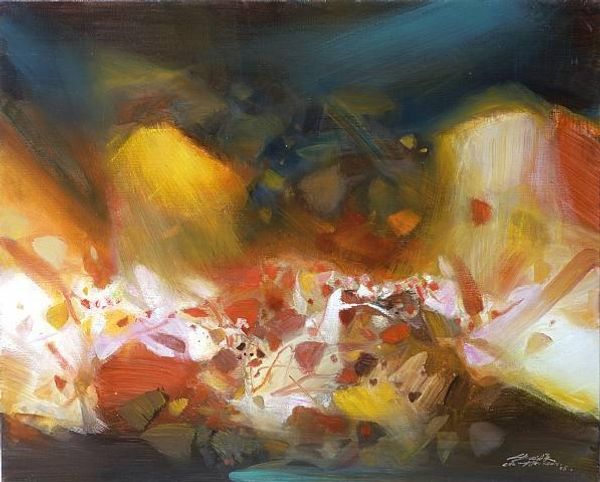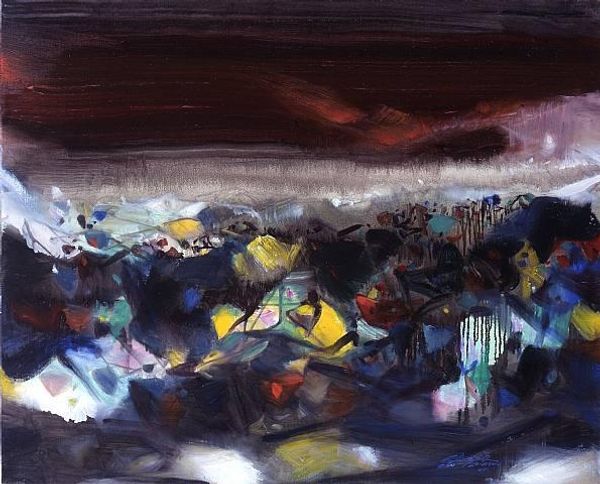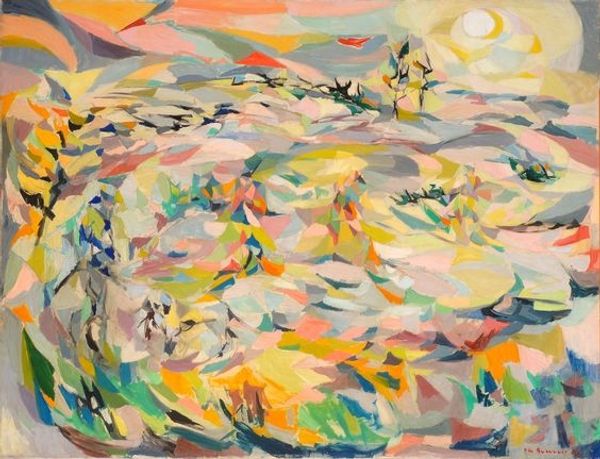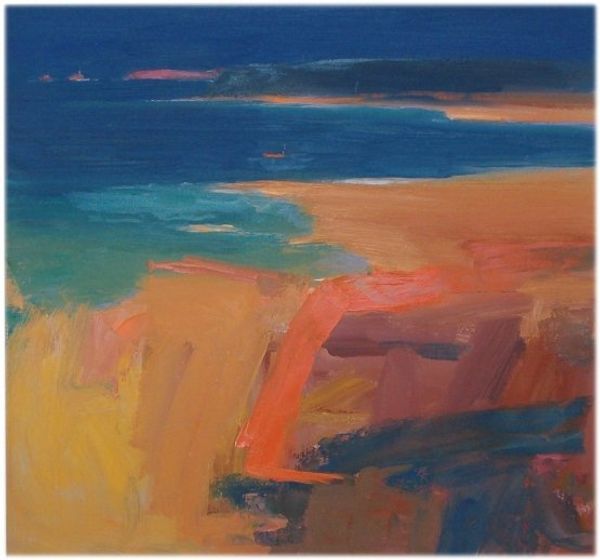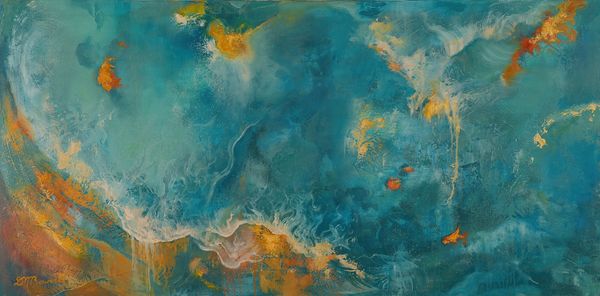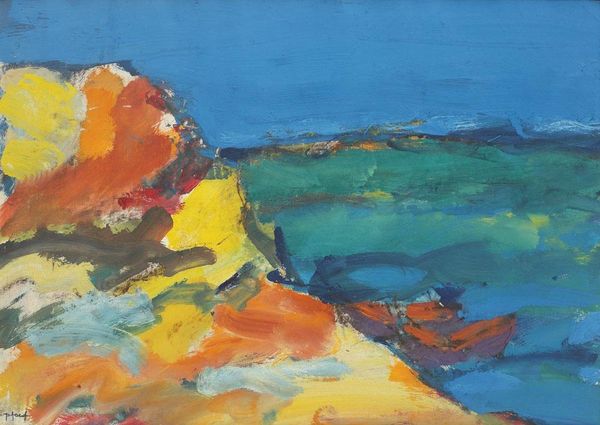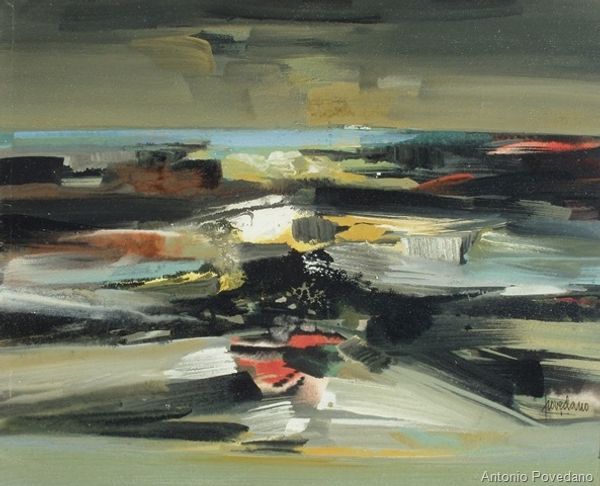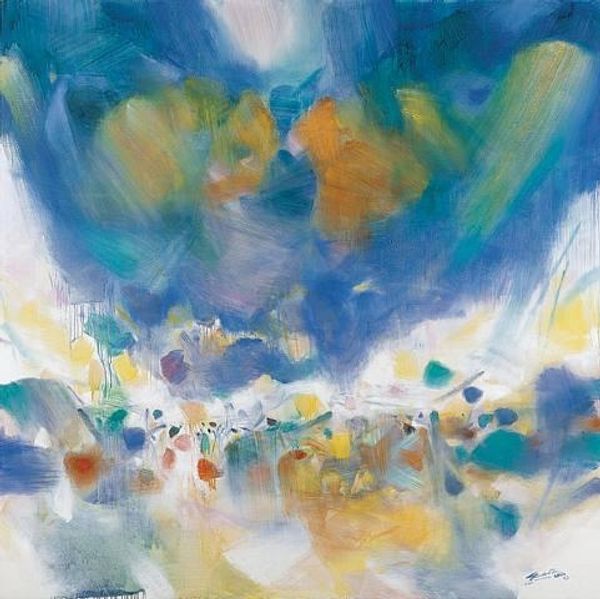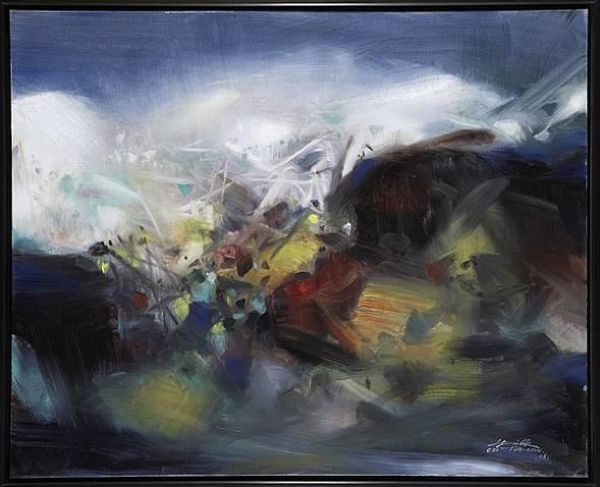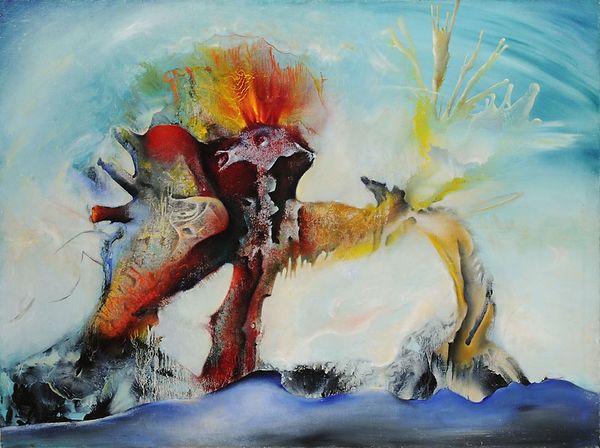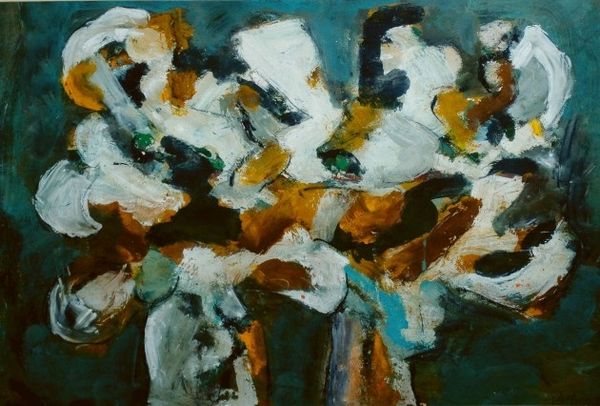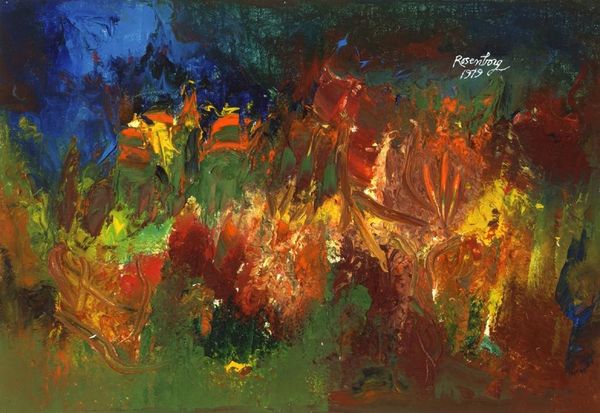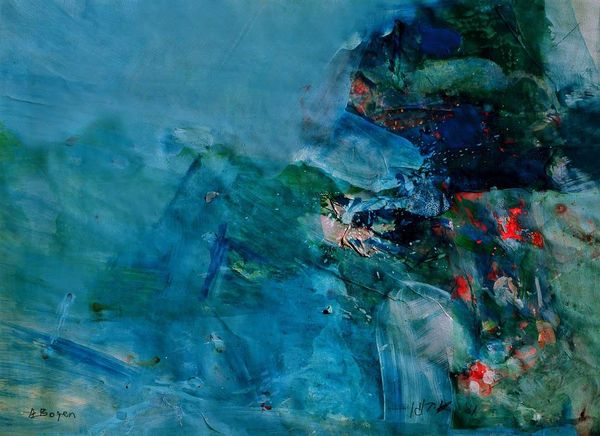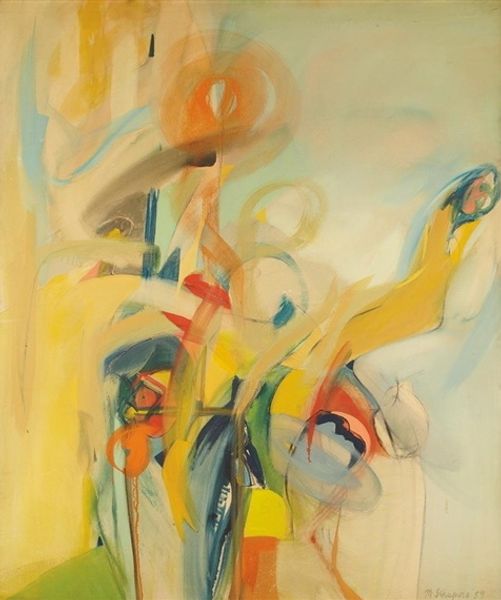
Copyright: Chu Teh-Chun,Fair Use
Curator: Before us is Chu Teh-Chun’s “Nuee Immatérielle,” created in 2007 using oil paint. It is a striking example of abstract expressionism. What are your initial thoughts? Editor: The canvas is a rush of color and energy; almost overwhelming. There is an immediacy and an urgency to the brushstrokes. Is this landscape dissolving before our eyes, or being born? It evokes the precarity of nature in an increasingly unstable world. Curator: It’s fascinating how Chu Teh-Chun, while rooted in traditional Chinese ink painting and calligraphy, embraced Western abstract expressionism. He moved to Paris in 1955, which, of course, had a profound influence on his style and perspective, eventually shaping the public perception of Chinese art internationally. Editor: Absolutely. But it's not simply a synthesis; it’s a negotiation. Abstraction, in his hands, isn't apolitical. It offers a space to reflect on identity and cultural displacement, reflecting his personal narrative through art. Curator: Indeed. Note the influence of artists like Nicolas de Staël, though Chu carves out his own path by merging gestural painting with elements evoking the Chinese landscape tradition. Think about how his artwork, though abstract, mirrors ideas of nature and humanity, resonating powerfully even without any representational features. The interplay of light and shadow—is it sunlight breaking through clouds, or a more metaphorical illumination? Editor: Precisely. And it’s not a passive landscape, but active. There’s a dynamic tension—struggling and thriving all at once, embodying a form of resilience, echoing our contemporary political dialogues surrounding immigration. The artwork demands that viewers situate it in the world—asking us to reckon with our own contexts and prejudices. Curator: So, beyond being an aesthetic triumph, "Nuee Immatérielle" invites reflection on the forces that shape artistic identity. Considering the political implications allows us to see it not merely as pigment on canvas but a powerful narrative shaped by broader global exchanges and historical forces. Editor: In the end, it's the potential to explore personal narratives, historical contexts, and a whole host of theoretical debates through abstraction that makes works like these feel relevant, accessible, and urgent today. The painting itself is almost an act of resistance, pushing back on prescribed meanings, defying easy consumption, and inviting us to keep looking closer.
Comments
No comments
Be the first to comment and join the conversation on the ultimate creative platform.
